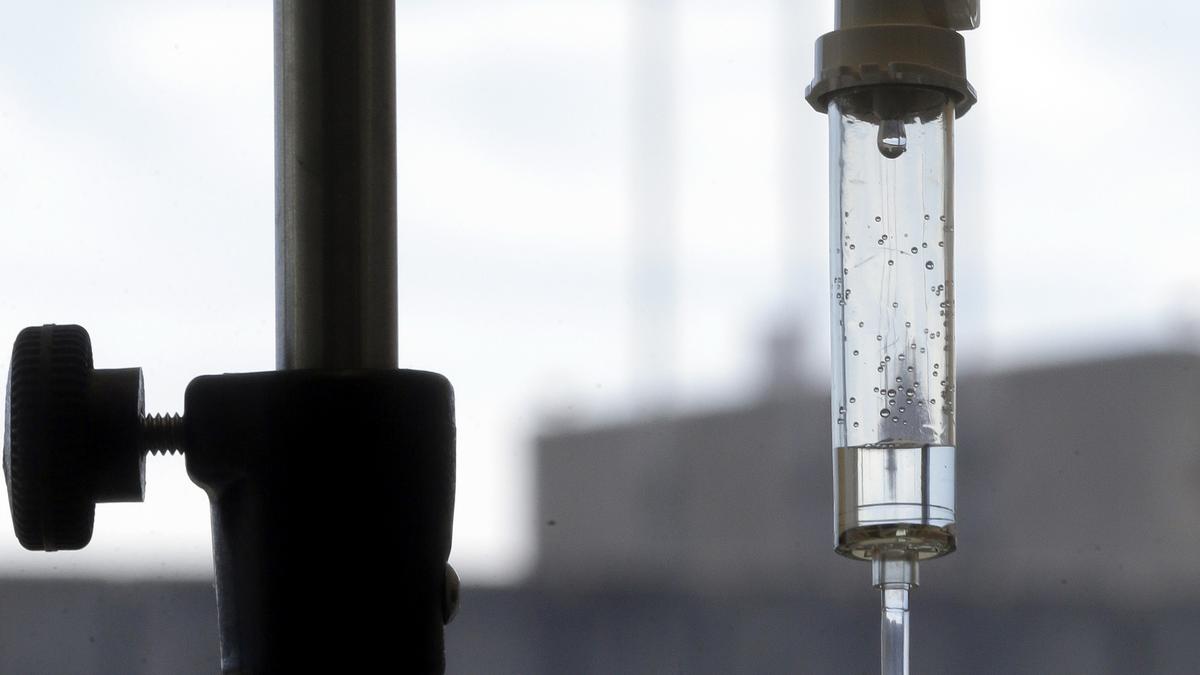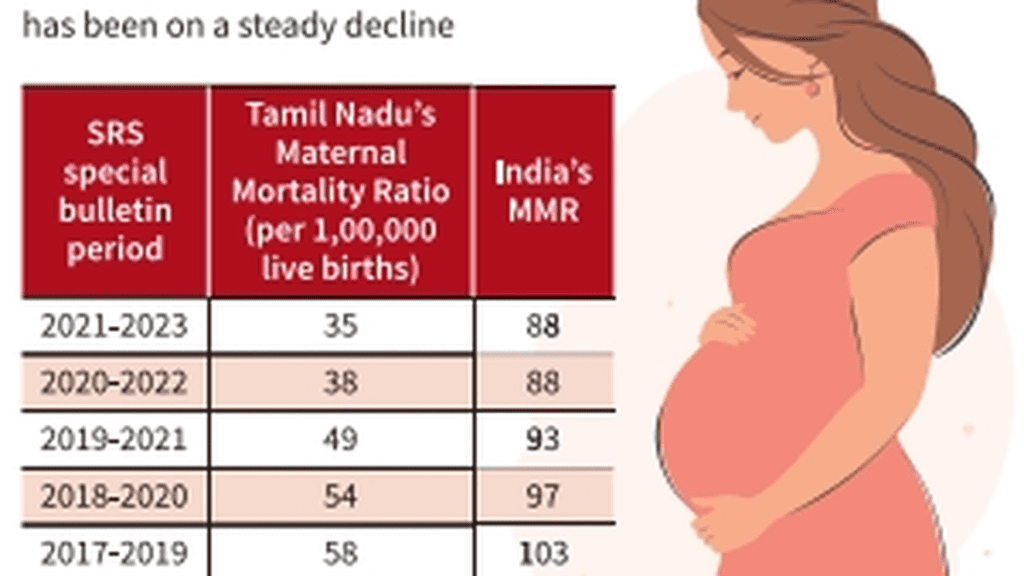What is Ringer’s Lactate and why is one brand of it believed to be behind maternal deaths in India? Premium

What is Ringer’s Lactate and why is one brand of it believed to be behind maternal deaths in India? Premium
Ringer’s Lactate (RL) is an intravenous (IV) fluid that medical professionals use as replacement for patients who lack fluid in their bodies due to a medical cause: this can happen as a result of an accident, dehydration, childbirth or any other cause.
This solution has recently hit the headlines after a woman in West Bengal’s Medinipur Medical College and Hospital died on January 9 after she was allegedly administered ‘expired’ RL. Four other women fell critically ill after the same RL was used on them. Both medical and political debates heated up in the State following these incidents.
The West Bengal death came just a few weeks after four women died in Karnataka’s Ballari District Hospital, due to, as an investigation later found, non-standard Ringer’s Lactate. In both States, the IV fluid had been provided by a private pharmaceutical firm, Paschim Banga Pharmaceuticals. Karnataka subsequently blacklisted the firm, after writing to the Drugs Controller General of India, asking it to investigate the issue. To date, there has been no clarification from the company on this issue.
In discussions following the deaths, some have questioned the use of RL as an IV fluid. However, medical professionals have said RL is safe: the batch provided by the pharma company was perhaps to blame but RL, in is general, is a life saver. .
RL is a sterile fluid that is a combination of sodium chloride, potassium chloride, calcium chloride, and lactate, and can be used in various patients including those with burn injuries, accident cases, cases with post-operation blood loss issues, women undergoing Cesarean section deliveries, and other medical cases.
RL is a crystalloid solution — one of the most common types of IV fluids, containing small, dissolved molecules that can easily pass from the bloodstream into tissues and cells.
Our bodies are made up of about 60% water. Water is essential to every cell in the human body. When there is inadequate water in the body, a person becomes dehydrated. Dehydration can affect the balance of electrolytes in the body; it can affect energy levels, cognition and also affect multiple organs of the body including the kidneys, heart and brain. Extreme dehydration requires the administration of IV fluids.
People who are hospitalised, who have had surgery, have suffered injuries or burns or have spent too much time in the heat may be dehydrated and require IV fluids. The administration of IV fluids helps treat/prevent dehydration and helps with correcting electrolyte imbalances. IV fluids are administered into a person’s veins through an intravenous tube.
Pranab Kumar Biswas, Head of the Department at Gynecology and Obstetrics at Calcutta National Medical College & Hospital says that RL is a commonly used IV fluid for anyone who is losing water in their body due to any medical condition. He adds that only an investigation could reveal if this particular brand of RL was problematic, and this remains to be seen.
“RL was never the problem. This one brand of RL is the main issue,” says Tapas Pramanick, Medical Officer at RG Kar College and Hospital, Kolkata. “If the Karnataka Health Department banned this fluid due to quality issues, how is it acceptable in our hospitals?” he asks.
Dr. Pramanick also pointed out that that while death of the woman post childbirth brought this brand of RL into the news, many doctors have been flagging issues with regard to quality for a long time now. “In city hospitals, families of patients can still find RL from other brands in private medical shops. But in districts and rural hospitals, how can patients access anything other than what the government supplies them?”
On December 10, 2024, the Licensing Authority and Controlling Authority of Siliguri Regional Office, Drugs Control, West Bengal issued an order for Paschim Banga Pharmaceuticals Pvt Ltd to “Stop all manufacturing activities for commercial purpose till further notice.” However, no ban on the usage of any products by this company was issued by the West Bengal government until January 11, after the death of the woman at Medinipur.
Subarna Goswami, a senior medical professional who has been vocal about issues faced by doctors in the State told The Hindu, “Why did the government not retract the available medicines produced by Paschim Banga Pharmaceuticals that were there in circulation in the government hospitals? They asked for manufacturing to be stopped, but that does not solve the whole issue; what about the existing stock? They did not say anything about that till much later in January.”
Dr Goswami also added that hundreds of doctors have flagged this particular brand of RL in multiple hospitals across the State, but up until, their concerns had met with no response.
Following the death and subsequent illnesses of other patients, a political storm erupted in West Bengal. The government has now banned the usage of RL and nine other IV fluids until further investigations and clearance.
Leader of Opposition, Suvendu Adhikari alleged that the “Defective RL saline supplied by Paschim Banga Pharmaceutical Ltd.” had led to the tragic death of the new mother.
Meanwhile, on January 14 the government issued a notice to all medical colleges and hospitals, stating that all items procured from Paschim Banga Pharmaceuticals should not be used even if available, and all existing stocks should be withdrawn.
The Mamata Banerjee government has suspended 12 doctors in relation to this case, terming it “medical negligence”. The Joint Platform of Doctors in West Bengal has however, issued a statement and said, the authorities trying to shift the blame on to the doctors to distract from the real issue of the pharma company supplying substandard products.










